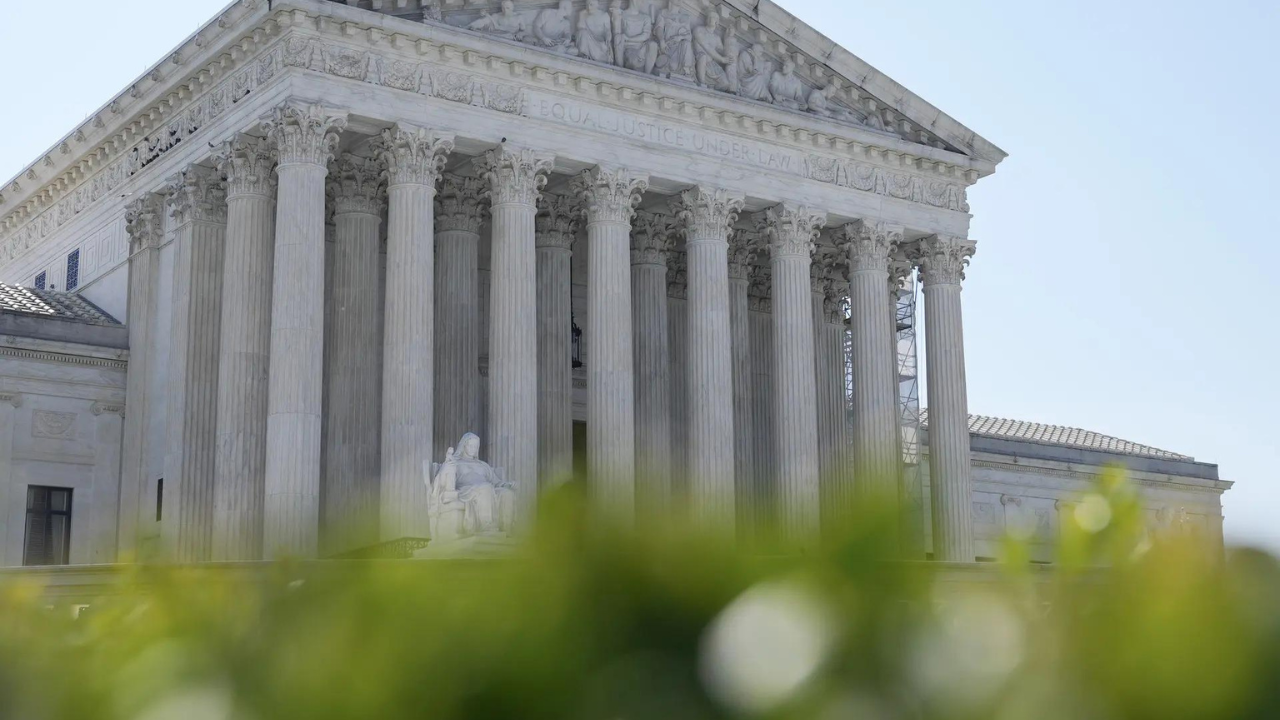NEW DELHI: The US Supreme Court has upheld the constitutionality of a tax imposed on Americans who have invested in certain foreign corporations. The 7-2 ruling, delivered on Thursday, comes at a time when some Democrat lawmakers are pushing for a wealth tax on the super-rich.
The case involved Charles and Kathleen Moore, a retired couple from Redmond, Washington, who challenged the “mandatory repatriation tax” (MRT) imposed on foreign company earnings, even if those profits have not been distributed to shareholders.The tax, which was part of a Republican-backed tax law passed in 2017, applies to owners of at least 10% of a foreign company controlled by Americans.
The central issue in the case was whether this tax on unrealized gains was permitted under the US Constitution’s 16th Amendment, which allows Congress to “collect taxes on incomes.” The Moores, supported by various conservative and business groups, argued that “income” refers only to gains that are realized through payment to the taxpayer, not merely an increase in the value of property.
Justice Brett Kavanaugh, in his majority opinion joined by Chief Justice John Roberts and the court’s three liberal members, stated that the MRT “does tax realized income – namely, income realized by the corporation,” attributes that undistributed income to shareholders, and taxes them on their share of it. “The MRT therefore falls squarely within Congress’s constitutional authority to tax,” Kavanaugh wrote.
However, Kavanaugh clarified that the court was not deciding on the key dispute of whether an economic gain must be realized or not to be considered income – a crucial question related to the concept of a wealth tax. Justice Amy Coney Barrett, in a separate opinion joined by Justice Samuel Alito, expressed her view that the Constitution does not allow Congress to tax unrealized sums without apportionment among the states.
Justices Clarence Thomas and Neil Gorsuch dissented, also noting that “unrealized gains could not be taxed as ‘income'” under the 16th Amendment.
The Moores sought a refund of nearly $14,729 in taxes they were required to pay as minority shareholders in a company based in Bangalore, India. The Justice Department had warned that a ruling invalidating the MRT could have cost the US government $340 billion over the next decade and potentially more if other tax provisions were also affected.
The ruling also has implications for legislative proposals favored by some Democrats, such as Senator Elizabeth Warren, who advocate for a tax on the net worth of super-rich Americans. However, such proposals face significant challenges in Congress, particularly with the House of Representatives under Republican control.
The case involved Charles and Kathleen Moore, a retired couple from Redmond, Washington, who challenged the “mandatory repatriation tax” (MRT) imposed on foreign company earnings, even if those profits have not been distributed to shareholders.The tax, which was part of a Republican-backed tax law passed in 2017, applies to owners of at least 10% of a foreign company controlled by Americans.
The central issue in the case was whether this tax on unrealized gains was permitted under the US Constitution’s 16th Amendment, which allows Congress to “collect taxes on incomes.” The Moores, supported by various conservative and business groups, argued that “income” refers only to gains that are realized through payment to the taxpayer, not merely an increase in the value of property.
Justice Brett Kavanaugh, in his majority opinion joined by Chief Justice John Roberts and the court’s three liberal members, stated that the MRT “does tax realized income – namely, income realized by the corporation,” attributes that undistributed income to shareholders, and taxes them on their share of it. “The MRT therefore falls squarely within Congress’s constitutional authority to tax,” Kavanaugh wrote.
However, Kavanaugh clarified that the court was not deciding on the key dispute of whether an economic gain must be realized or not to be considered income – a crucial question related to the concept of a wealth tax. Justice Amy Coney Barrett, in a separate opinion joined by Justice Samuel Alito, expressed her view that the Constitution does not allow Congress to tax unrealized sums without apportionment among the states.
Justices Clarence Thomas and Neil Gorsuch dissented, also noting that “unrealized gains could not be taxed as ‘income'” under the 16th Amendment.
The Moores sought a refund of nearly $14,729 in taxes they were required to pay as minority shareholders in a company based in Bangalore, India. The Justice Department had warned that a ruling invalidating the MRT could have cost the US government $340 billion over the next decade and potentially more if other tax provisions were also affected.
The ruling also has implications for legislative proposals favored by some Democrats, such as Senator Elizabeth Warren, who advocate for a tax on the net worth of super-rich Americans. However, such proposals face significant challenges in Congress, particularly with the House of Representatives under Republican control.






